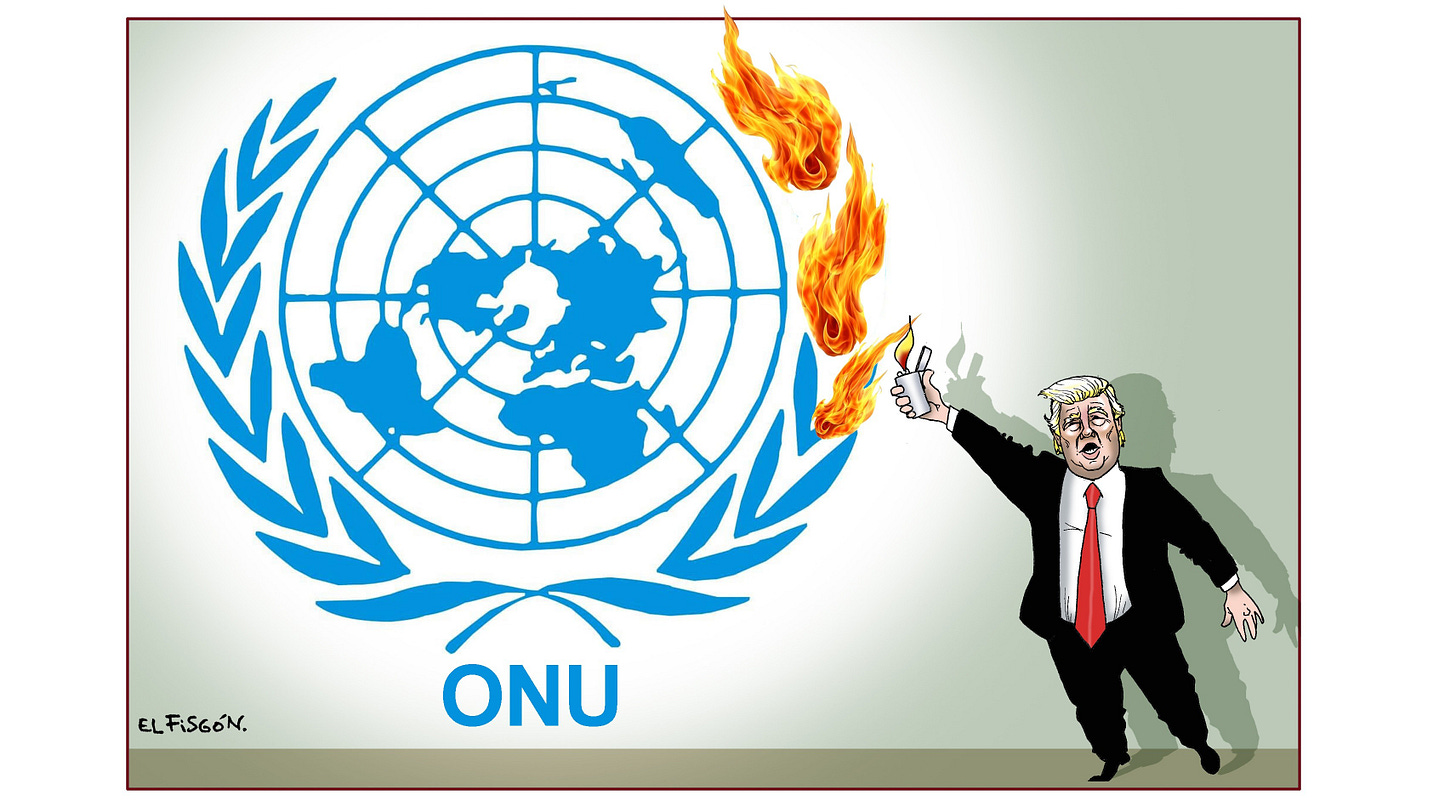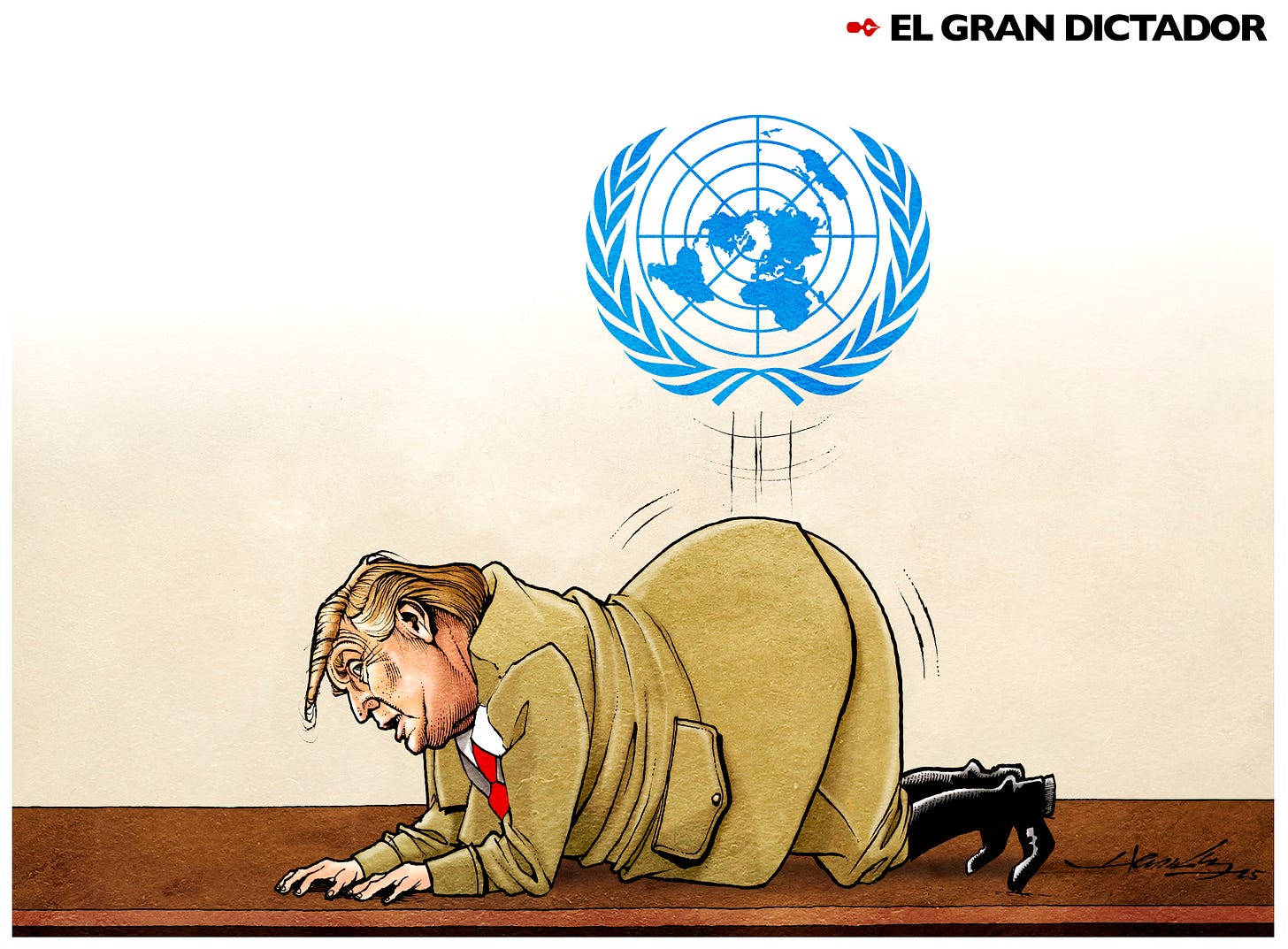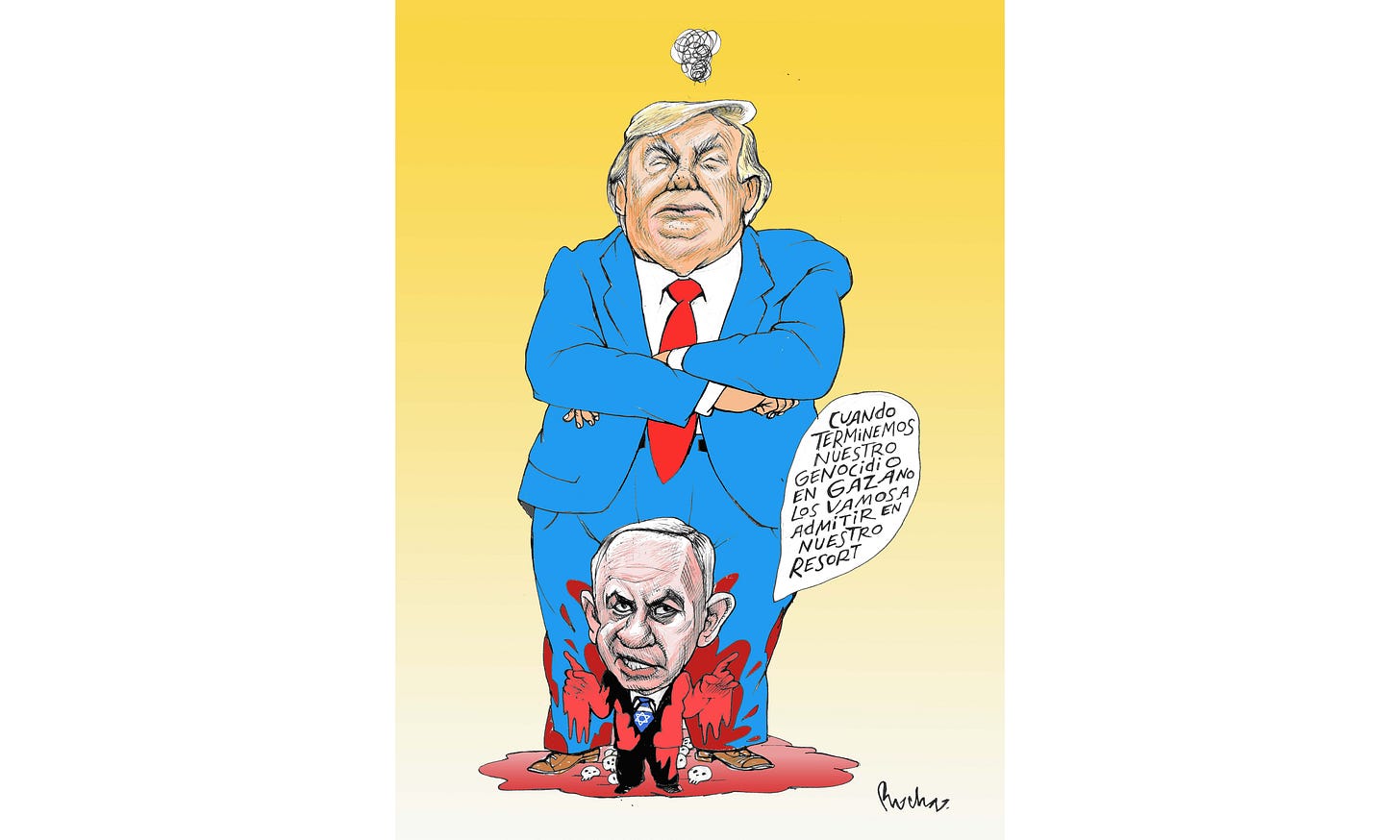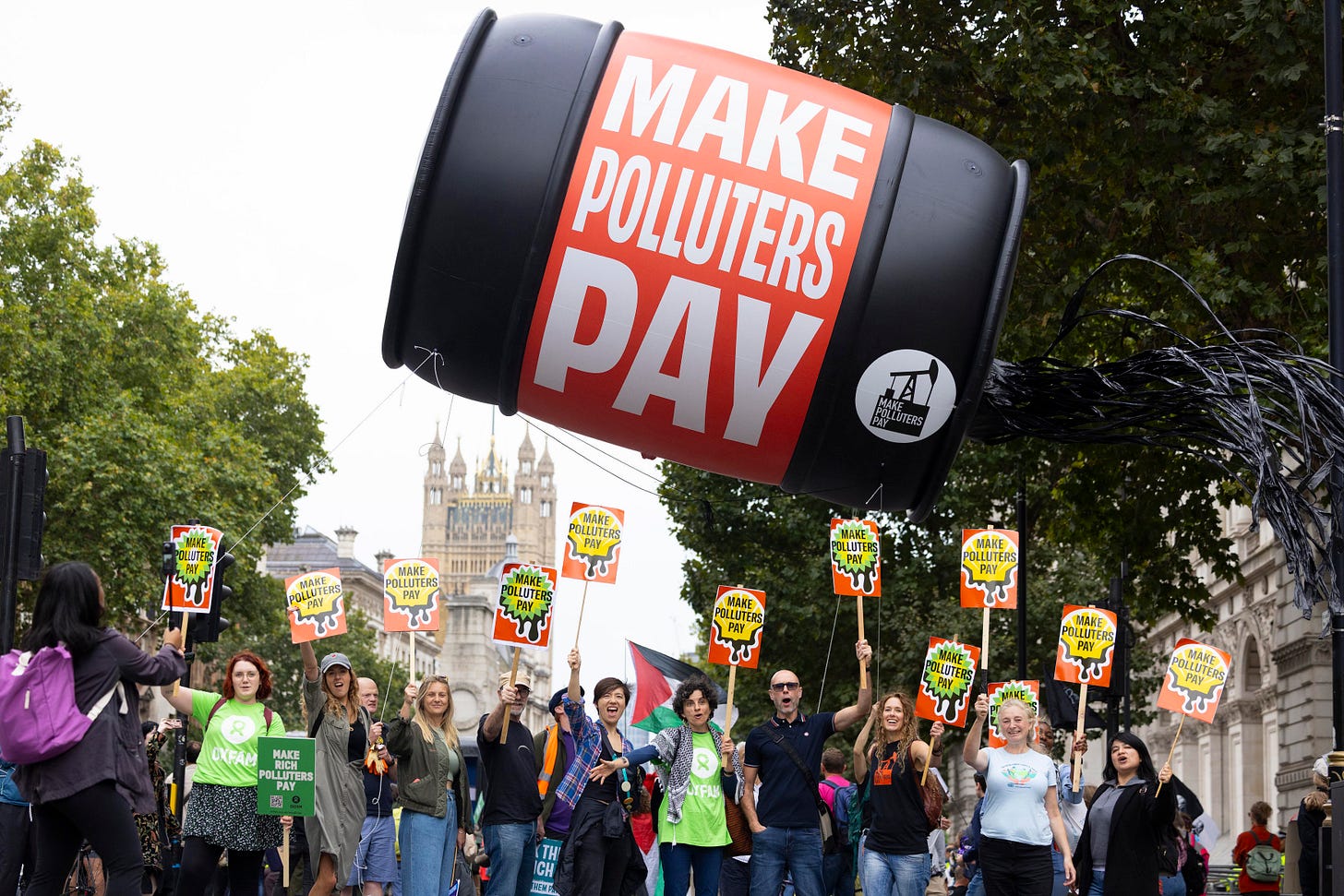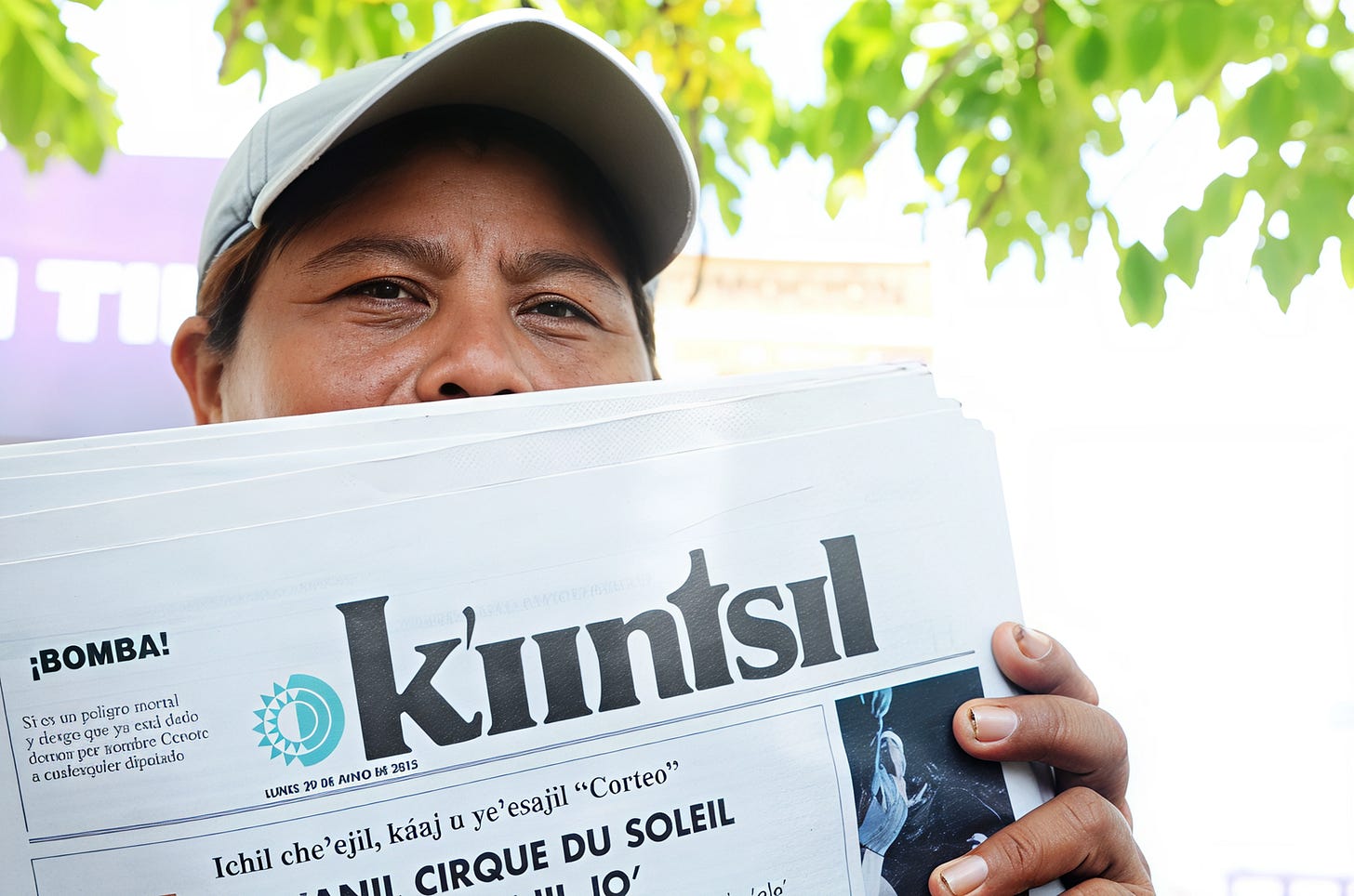The UN on the Brink
Also: At last, the word “genocide” is spoken by the Mexican government. In defense of Indigenous languages in Mexico. The origin of the anthem “The People United Will Never Be Defeated.”
Lea La Jornada Internacional en español aquí.
The UN is under assault like never before.
The overwhelming majority of the UN’s 193 member states — with the extraordinary exception of the United States — gathered this week to highlight the urgent need to address the climate crisis, stop Israel’s genocidal war against the Palestinian people, as well as Russia’s war in Ukraine, and to promote sustainable development goals including the eradication of poverty and hunger. They met at a time when the world’s leading international organization is facing its worst crisis in 80 years.
“At this moment, the principles of the United Nations are under assault like never before,” said Secretary-General António Guterres. “As we meet, the planet burns, with fires, floods, and record heat raging through climate chaos,” he said. He acknowledged that the international community has failed in its core mission to curb conflicts like those in Gaza and Ukraine, and is falling further behind in meeting its sustainable development goals and its commitment to addressing climate change.
“Multilateralism is at a new crossroads. The authority of this organization is in jeopardy,” added Brazil’s President Luiz Inácio Lula da Silva. “Around the world, anti-democratic forces are trying to subjugate institutions and stifle freedoms.”
But the international disorder that emerged this week is nothing new. In fact, global agreements have been reached, such as the Paris Climate Accord and earlier the Sustainable Development Goals, as well as resolutions, one after another, on the crisis in the Middle East and other conflicts, only for each year to bring fresh lament over the lack of progress, and even backsliding, on these fronts.
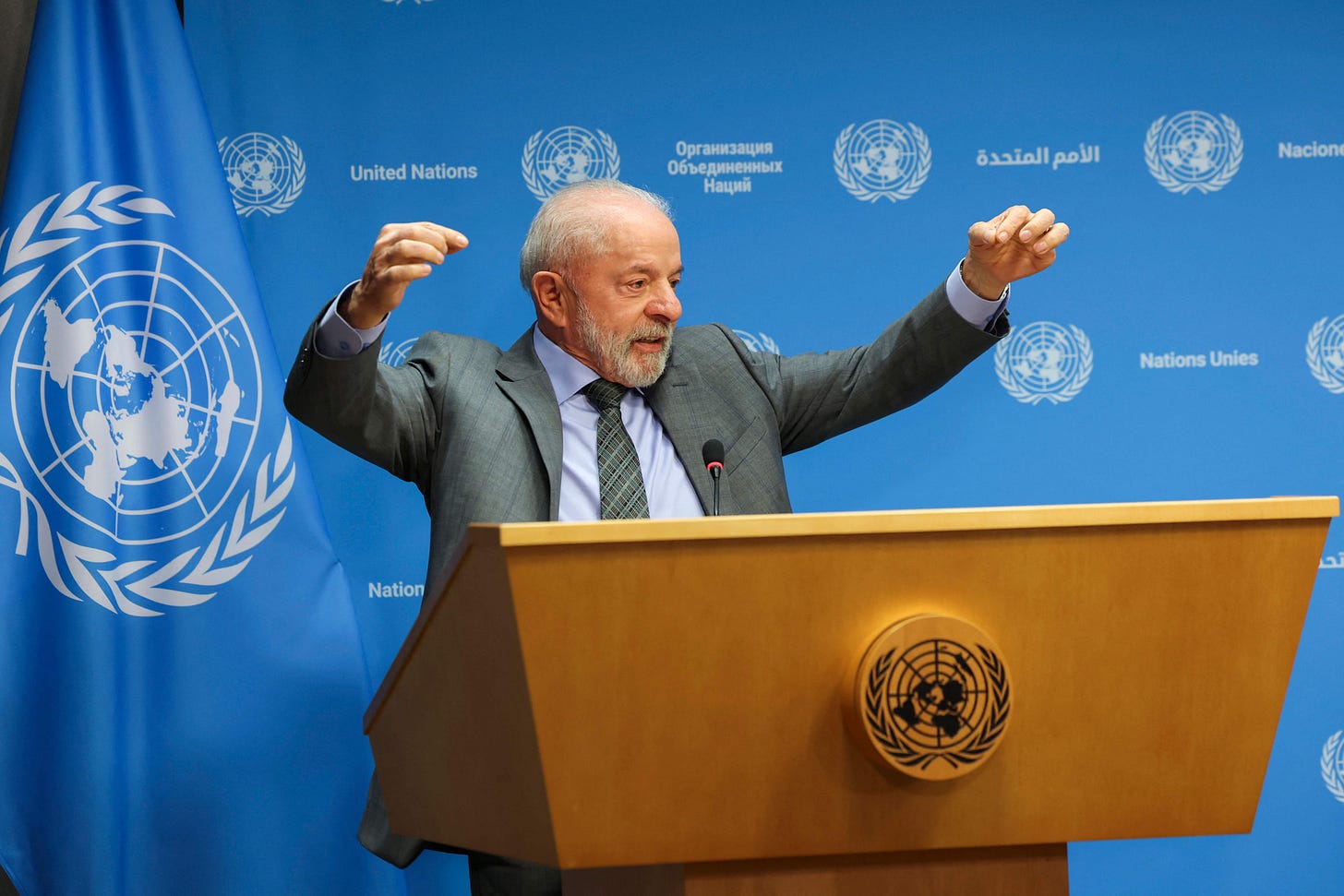
The elephant in the room is the United States and a handful of its allies who are more isolated than ever within the so-called international community as the 80th anniversary of the world’s supreme institution is commemorated. Over 150 countries defied Washington’s wishes and directives by recognizing the State of Palestine, and 14 out of the 15 members of the Security Council are calling for an end to Israel’s war. But the United States continues to arm Israel and blocks any substantial action by the international community.
The president of the United States, a founding nation of the UN, appeared to take pride in this isolation from global opinion and blamed everyone else for the world’s problems. “Your countries are all going to hell,” declared Donald Trump in his speech before the General Assembly, making it clear that the only path to salvation is through working with the United States. Among other things, he stated that recognizing a Palestinian state is a gift to “terrorists,” dismissed climate change as “a hoax,” described migration as a threat to civilization, and proclaimed that the UN has failed in everything.
Trump has launched a full-scale attack on the agreements and consensus established at the UN: he withdrew the U.S. from the Paris Agreement, the World Health Organization (WHO), and UNESCO; discredited the authority of the International Court of Justice and the International Criminal Court; and threatened sanctions against their officials, sanctions that have already been imposed on the UN Special Rapporteur on Palestine, Francesca Albanese.
“What is it really good for?” Trump asked in his address to the UN.
The response came clearly in the statements from Brazil, Mexico, South Africa, Colombia, Chile, Cuba, and many others, who agreed that the UN should be preserved as a space for addressing the world’s challenges. The General Assembly remains the only global forum where countries of all sizes have a (limited) voice and vote. Lula stated: “The 21st century will increasingly be multipolar. And for it to remain peaceful, it must remain multilateral.”
The big question now is whether the UN will live to see its 81st anniversary.
The Quote:
Comedy doesn’t change the world, but it’s a bellwether; we’re the banana peel in the coal mine. When a society is under threat, comedians are the ones who get sent away first.
-Jon Stewart, upon receiving the Mark Twain Prize in 2022.
In case you missed it
◻️ Stop the genocide in Gaza, Mexico’s position at the UN. For the first time, President Claudia Sheinbaum stated she is “in agreement with the international community that this genocide in Gaza must stop. That is our position (…) there can be no aggression against the civilian population like what is happening right now.” Meanwhile, the government is under pressure to do more.
◻️ Mexico calls for abandoning extractivist models. “We don’t have a Plan B, nor do we have a Planet B; every second counts in this historic fight for climate justice,” declared Secretary of the Environment Alicia Bárcena at Climate Week in New York. Meanwhile, the UN warns of “impunity” in the disappearances of environmental activists in Mexico and worldwide.
◻️ Still shaking. Forty years after the earthquakes of September 19, one in 1985 and another eight years after on the same date in 2017, the memories and consequences remain present. Elena Poniatowska, author of Nada, nadie, asks why we bring these memories back, and answers: “To remember our dead, but also to take pride in our fortitude. In both of these earthquakes, those who risked everything and are still willing to do so are everyday Mexicans.” Hermann Bellinghausen recalls that the 1985 quake was also a social earthquake: “Important neighborhood and disaster victim organizations were born. Collective awareness took life into its own hands. (…) The legacy of the quake made us feel like a better society. We called it ‘civil.’” The experience was captured in murals. La Jornada offers the full newspaper from that day in 1985.
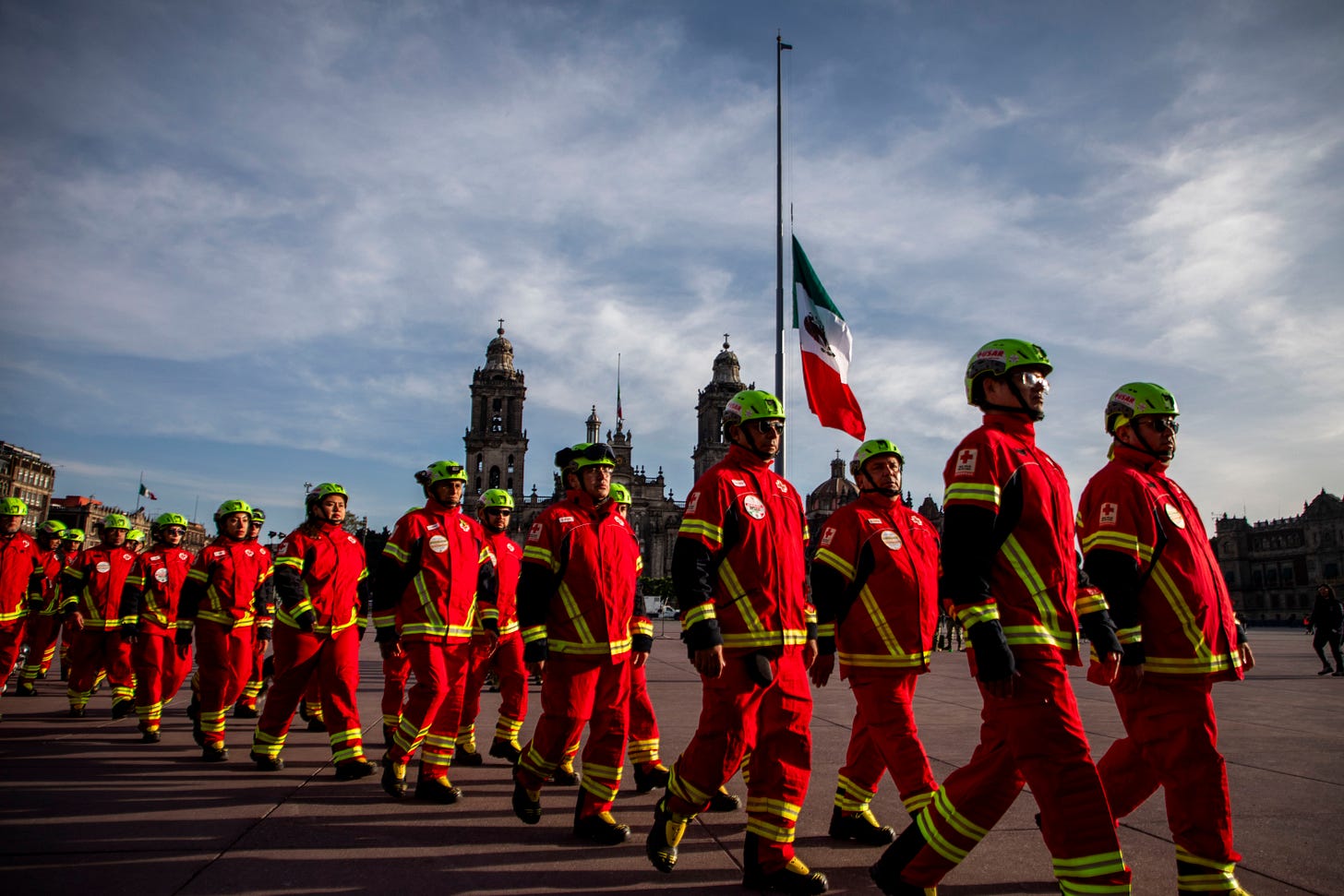
◻️ In defense of Mexico’s indigenous languages. According to the Tojolabal understanding, humanity speaks, defined by dialogue, and for them, there must be more than just one, explains Armando Bartra in his introduction to the new issue of the supplement La Jornada del Campo, dedicated to defending indigenous languages and evaluating language policies in Mexico.
◻️ The White House prepares its blacklist. Anyone opposing the Trump administration’s agenda is now labeled as an “enemy” and “radical left” and could face criminal investigation. This is part of a promised crackdown on organizations and individuals opposed to the government, whom the Trump administration accuses of promoting political violence and even “terrorism.” The assassination of Charlie Kirk is being used by the administration and its allies to intensify the offensive against a wide range of opponents, write John Saxe-Fernández, Bernardo Barranco V., and David Brooks.
◻️ Quilapayún and the origin of the anthem The People United Will Never Be Defeated. Fernando Morán recounts the origin of the Chilean musical group Quilapayún, which included collaborations with Víctor Jara and Ángel Parra, among others, in the 1960s, helping to shape the era of nueva canción. Perhaps their greatest gift was the popular anthem The People United Will Never Be Defeated, which was adopted by all kinds of social organizations.
◻️ Frida’s new home. The Casa Roja, next to the famous Casa Azul, has opened to offer another museum space to share the intimate and family life of Frida Kahlo.
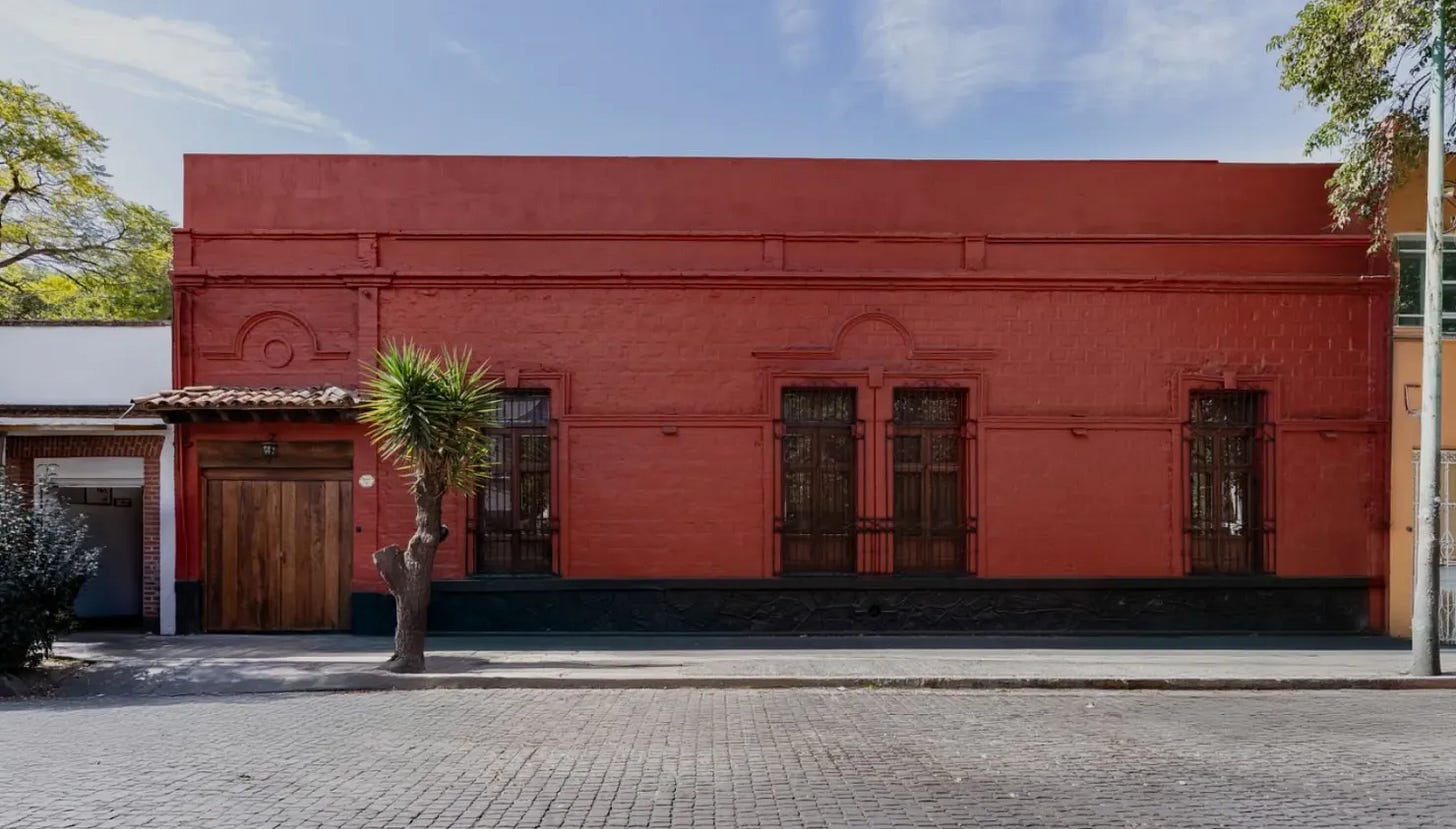
🎧 What we’re listening to
Quilapayún: The People United Will Never Be Defeated



